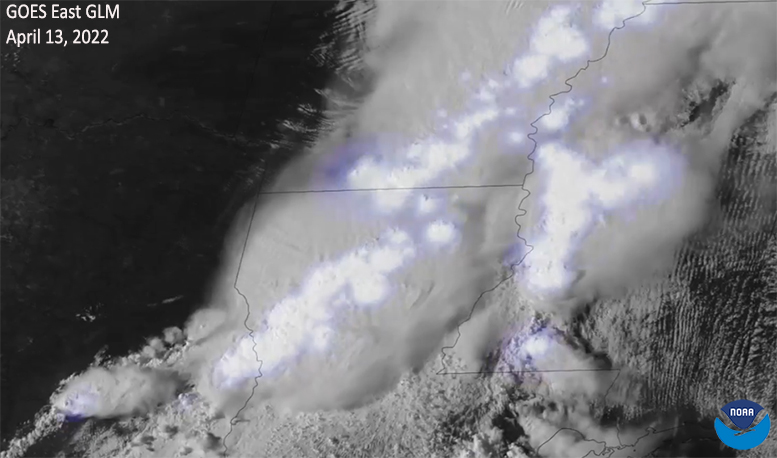Our bodies need nitrogen to make proteins. The atmosphere’s composition is 78% nitrogen, but the nitrogen in the air is not available to our bodies.
The two atoms in the airborne nitrogen molecule are held together very tightly. For our bodies to process that nitrogen, the two atoms must separate.
We obtain nitrogen from protein-containing foods in our diet. For example, plants absorb nitrates in the soil. When we eat plants, we get the nitrogen in a form that our bodies can use.
Plants also cannot make use of the nitrogen in the atmosphere. Fertilizers are one way to add nitrogen to the soil so that plants can use it.
Lightning is another way to get nitrogen into the soil.
Lightning is a huge electrical discharge that results from vigorous motions that occur in thunderstorms. Charges form in a storm composed of ice crystals and liquid water drops. Winds inside the storm cause particles to rub against one another, causing electrons to be stripped off, making the cloud particles either negatively or positively charged.
The charges get grouped in the cloud, often negative charges near the bottom of the cloud, and positive charges up high. This is an electric field, and because air is a good insulator, the electric fields become incredibly strong. Eventually a lightning bolt occurs to neutralize the electric field.
Bolts of lightning are powerful enough to break the strong bonds of the nitrogen molecule in the atmosphere. Once split, the two nitrogen atoms quickly bond to oxygen in the atmosphere, forming nitrogen dioxide. Nitrogen dioxide dissolves in water and forms rain droplets in the storm cloud, creating nitric acid, which forms nitrates.
The raindrops that carry the nitrates to the ground seep into the soil, where it can be absorbed by plants.
Steve Ackerman and Jonathan Martin, professors in the UW-Madison department of atmospheric and oceanic sciences, are guests on WHA radio (970 AM) at 11:45 a.m. the last Monday of each month. Send them your questions at stevea@ssec.wisc.edu or jemarti1@wisc.edu.


